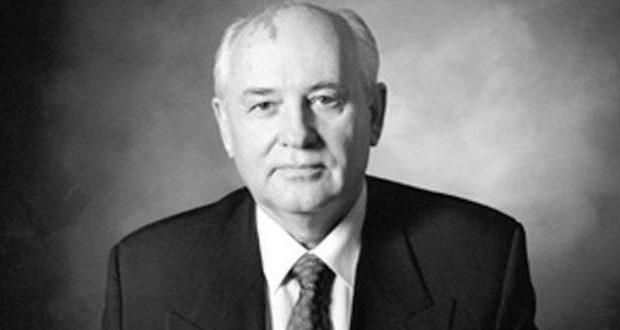There’s an interesting story about former Soviet leader Mikhael Gorbachev and how faith intersected his life.
It isn’t every day that one of the creators of a political thriller gets to ask its real-life protagonist to evaluate the novel’s plot.
But that happened when the late Billy Wireman, president of Queens University in Charlotte, North Carolina, handed the last Soviet leader Mikhail Gorbachev a copy of “The Secret Diary of Mikhail Gorbachev”. The 1990 novel was written by journalist Frye Gaillard, based on a Wireman idea.
The plot: There were spiritual motivations behind “glasnost” and ”perestroika,” Gorbachev’s risky ideas to restructure Soviet life. But furious KGB insiders — including a would-be assassin — managed to steal Gorbachev’s diary, in which he confessed his Christian faith.
Wireman wrote down Gorbachev’s response after hearing the book’s premise: “You must have been reading my real diary.”
This faith question never vanished. No matter how often Gorbachev reaffirmed his atheism, he also stressed his respect for the beliefs of his communist father and devout Russian Orthodox mother. His maternal grandparents hid holy icons behind their home’s token Vladimir Lenin portraits.
READ: Inside the church honoring Putin
Gorbachev died on Aug. 30 at age 91, and his funeral was held in the Pillar Hall of Russia’s House of the Unions, after President Vladimir Putin denied him a state funeral. He was buried in the cemetery of Moscow’s Novodevichy Convent next to his wife, Rgoraisa, who died in 1999 of cancer.
“Regardless of the geopolitical realities of that era, there was something going on inside Gorbachev,” said Gaillard, writer in residence at the University of South Alabama in Mobile and former Southern editor of The Charlotte Observer. He is the author of 30-plus books, including “A Hard Rain: America in the 1960s,” which won the 2019 F. Scott Fitzgerald Literary Prize.
“Why did he do it? That’s the question that won’t go away,” Gaillard added. “That’s what has fascinated people for decades and it still does. We may never know now that he’s gone. … But all that speculation about his beliefs is at the heart of the book.”
Gaillard traveled to the Soviet Union before writing “The Secret Diary” and filled many notebooks with information and images from Soviet and American insiders who, in private, were asking similar questions about Gorbachev. Russian Orthodox leaders believed his mother’s faith was crucial. Probing those roots in southern Russia, Gaillard found that people who had long known the extended Gorbachev family held similar beliefs.
In a pivotal scene — the novel was recently republished — a stunned investigator discovers Gorbachev’s private diary and photographs its scandalous contents.
Gaillard has the Soviet leader write: “Ours is a country with a Christian heart — that realization must serve as a cornerstone of reform. … Do I still believe in Lenin and Marx? The former, maybe; the latter, no. But a new kind of certainty is emerging. I am beginning to understand the old Russian saying, ‘What good is a road that doesn’t lead to a church?’”
Later, critics asked why he wanted to separate atheism and the doctrines of socialist revolution. “For a millennium,” replies the book’s Gorbachev, “Russian mothers have breathed certain values into their sons — that God, in fact, created the world, and that we must see his image in every human being. And yes, comrade, I have come to realize that I do believe it.”
The real Gorbachev, in a 1989 Vatican summit with St. John Paul II, thanked the pope for his prayers and explained that he realized politics was not enough.
“We are undergoing major changes in the spiritual sphere. … Considering the events of the past years I see that democratic measures alone are not sufficient,” said Gorbachev. “We also need ethics. Democracy can bring evil as well as good. It is what it is. It is very important to us to establish a moral society with such eternal universal human truths as goodness, charity and mutual help. In light of the changes taking place, we believe that it is necessary to respect the internal world of our religious citizens.”
The logical assumption, said Gaillard, is that Gorbachev — as a “political calculation” or for “heartfelt reasons” — had concluded that Mother Russia had a soul.
“This man was smart, and he knew Russian history,” he said. When he challenged the foundations of Soviet power, “he had to be thinking about the role of Russian Orthodox faith in that culture. But did he also have personal reasons for believing that?”
–Terry Mattingly leads GetReligion.org and lives in Oak Ridge, Tennessee. He is a senior fellow at the Overby Center at the University of Mississippi.
 Metro Voice News Celebrating Faith, Family & Community
Metro Voice News Celebrating Faith, Family & Community










